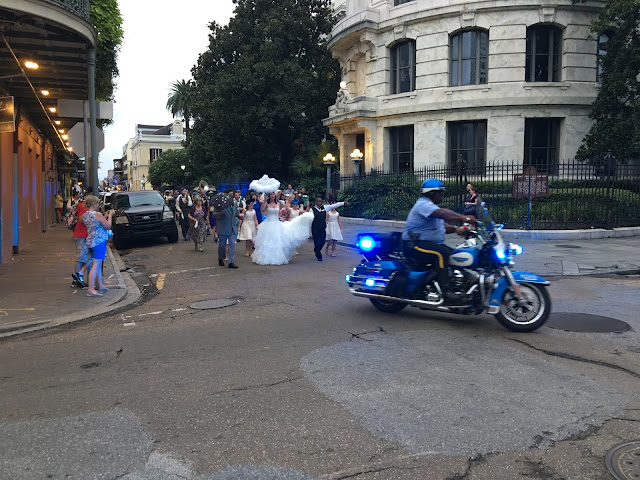By Crystal V. Rhodes
Ask most fans of mystery novels to name a black mystery writer and
my bet would be that the first name mentioned would be Walter Mosley. Ask fans to name two more black mystery
writers and you might be met with dead silence. Perhaps many of their names aren’t known, but black mystery
writers and the stories they tell date back to the early 20th century.
 Writer, Paula L. Woods, in an article written for The New
Crisis magazine, (September/October2001 edition) noted that the earliest
mystery fiction written by an
Writer, Paula L. Woods, in an article written for The New
Crisis magazine, (September/October2001 edition) noted that the earliest
mystery fiction written by an  African American didn’t appear in book form, but in
"colored" periodicals and newspapers. As early as 1900, a journalists named Pauline Hopkins wrote
the short stories, "The Mystery Within Us" and "Talma
Gordon," which appeared in issues of the Colored American
Magazine. A writer named John E. Bruce had his
mystery "The Black Sleuth" serialized in the 1907-1908 McGirt's
Reader.
African American didn’t appear in book form, but in
"colored" periodicals and newspapers. As early as 1900, a journalists named Pauline Hopkins wrote
the short stories, "The Mystery Within Us" and "Talma
Gordon," which appeared in issues of the Colored American
Magazine. A writer named John E. Bruce had his
mystery "The Black Sleuth" serialized in the 1907-1908 McGirt's
Reader.
It wasn’t until 1926 that the first mystery novel by a black
author was published. A Jamaican writer named W. Adolphe
Roberts wrote a book titled The Haunting Hand. However, none of the characters in
Roberts’ book were black. Because
of this it took nearly three quarters of a century for The Haunting Hand
to be recognized as the first published mystery novel written by a black
writer.
According to Woods, it wasn’t unusual in the 1920s for black
characters to be absent from the mystery genre, even from those books written
by black authors. It took twelve
years before a published mystery novel, written by an African American author
actually featured Black characters.
The year was 1932 and the book was The
Conjure Man written by Rudolph Fisher, who was a physician and a
personality of the Harlem Renaissance.
The Conjure Man featured Dr.
John Archer, a physician sleuth, and his sidekick, Perry Dart, a NYPD detective.
 In the 1940s a new voice joined the small list of black mystery
writers in this country. His name
was Chester Himes, and his works laid the foundation for many of today’s
contemporary black authors in a variety of genres. Early in his writing career, Himes wrote crime stories that
appeared mainly in African American periodicals, with a few having been
published in Esquire magazine.
In 1945 his acclaimed fiction novel If
He Hollers let Him Go was published and later it was made into a film, but
it was his Harlem Detective novels, featuring New York Police Detectives Coffin
Ed Johnson and Gravedigger Jones for which he is best known. Three of the books from that crime
series were made into movies, Cotton
Comes to Harlem (1970), Come Back,
Charleston Blue (1972) and A Rage in
Harlem (1991).
In the 1940s a new voice joined the small list of black mystery
writers in this country. His name
was Chester Himes, and his works laid the foundation for many of today’s
contemporary black authors in a variety of genres. Early in his writing career, Himes wrote crime stories that
appeared mainly in African American periodicals, with a few having been
published in Esquire magazine.
In 1945 his acclaimed fiction novel If
He Hollers let Him Go was published and later it was made into a film, but
it was his Harlem Detective novels, featuring New York Police Detectives Coffin
Ed Johnson and Gravedigger Jones for which he is best known. Three of the books from that crime
series were made into movies, Cotton
Comes to Harlem (1970), Come Back,
Charleston Blue (1972) and A Rage in
Harlem (1991).
Disenchanted with America’s racism and discrimination, Himes moved
to Europe in the 1950s where he lived and died, and it was there that he
received recognition as a writer.
France bestowed on Himes the Grand Prix de Literature Policiere, one of
that country’s most prestigious literary awards.
Many mystery and crime writers of note have followed in his
footsteps. Paula Woods cites not
only Walter Mosley, but Gar Anthony Haywood, Gary Phillips, Eleanor Taylor
Bland, Barbara Neeley, Chassie West, Penny Mickelbury, Patricia E. Canterbury,
Evelyn Coleman, Karen Grigsby Bates and, one of my personal favorites, Valerie
Wilson Wesley. These are just a
few of the array of African American mystery writers past and present. Add to that the names of L. Barnett
Evans and, yours truly, C.V. Rhodes, co-authors of the Grandmothers,
Incorporated cozy mystery series, and readers will discover a variety of
appealing characters and thrilling situations that will keep readers riveted.
So, the next time you’re looking for a good mystery novel,
remember these names and look up a few others. I doubt if you’ll be disappointed.
____________
For more about the Grandmothers, Incorporated cozy mystery
series written by C.V. Rhodes and L. Barnett Evans visit their website at
www.grandmothersinc.com.
 The Picasso Caper is a short story by Speed City Chapter member Ashley Couts. It among twenty short murder mysteries and tales of suspense included in The Fine Art of Murder, now available online for pre-order at Amazon (click here). Barnes and Noble (click here), and Walmart (click here).
The Picasso Caper is a short story by Speed City Chapter member Ashley Couts. It among twenty short murder mysteries and tales of suspense included in The Fine Art of Murder, now available online for pre-order at Amazon (click here). Barnes and Noble (click here), and Walmart (click here). 























